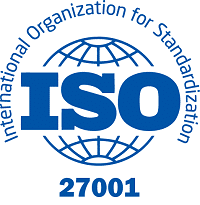ISO 27001 is Here to Stay – 2023 Update
Please Note: ISO 27001 had some changes and additions. See what those changes are: ISO 27001:2022
For companies interested in working with the government, the risk-based, top-down approach of ISO 27001 has taken a back burner to CMMC/NIST conversations over the past few years. With headlines and news focusing on the requirements of the DoD for contract security, some organizations have been forced to shift focus in order to properly allocate their work and reach necessary milestones.
Doing Business with Civilian Agencies?
But what about companies who aren’t seeking work in the defense industry? Or those who are still interested in broad information security management systems that aren’t technology-specific?
With a focus on risk management and fit for all business sizes, ISO 27001 provides building blocks for long-term, whole-business improvement. Directed by management with processes owned by the entire workforce, it helps cement the idea that cyber and information security isn’t just an IT problem.
With the ever-expanding option of avenues for achieving exceptional cybersecurity, ISO 27001 continues to hold its rank of effectiveness and importance.

ISO is an Internationally Recognized Standard
While our national security is of the utmost importance, the International Organization for Standardization (ISO) is still the global gold standard when it comes to business excellence and compliance. ISO 27001 is the only global security standard providing requirements for an Information Security Management System (ISMS) and it serves as a baseline for the development of other security frameworks across the world.
ISO 27001 Certification
The structure of ISO 27001’s risk-based approach and the PDCA cycle make it wide-reaching and flexible. Instead of specific actions and technologies, it allows companies to work within their established systems, evaluate weaknesses, and develop an ISMS specifically suited to their needs.
ISO 27001 and Cybersecurity
Under the umbrella of the ISO 27001 framework, organizations can manage multiple requirements at once. Successful implementation of the ISO 27001 ISMS covers many of the same touchpoints and systems as other security regulations. By achieving ISO 27001 certification, companies set themselves up for streamlined implementation of additional programs.
Through an assessment-based approach to security, the ISO 27001 standards help companies identify and mitigate risks. A series of controls helps form the management system so that it appropriately addresses each risk before, during, and after a breach.

ISO 27001 Compliance
Customers are more concerned about security than ever and for good reason. The number of cyber attacks on businesses of every size grows each day. So, your customers look for companies with whom to partner for business, and the security of shared information becomes a top priority. Some even require it as part of contractual agreements.
With its reputation as the global leader, ISO 27001 certification proves to current and potential customers that you have their best interests at heart. Demonstrating compliance means that you’ve taken the time to laboriously evaluate your entire business function to ensure the highest levels of security and practice. The rigor of the 27001 standards will help you stand out from your competition and strengthen existing relationships.
ISO 27001 and Continuous Improvement
Perhaps the single biggest benefit and proof of the continued importance of ISO 27001 is the focus of ISO standards on continuous improvement. Systems set up by the program are designed to be constantly evaluated and adjusted to ensure the highest and most informed levels of function. As security continues to evolve, those with ISO-certified information security management systems will be prepared to pivot as needed.

Annual third-party surveillance audits and three-year recertification requires companies to demonstrate that they have an active system run by an engaged management team who holds employees accountable. ISO’s practice of constant revision also provides updated guidance to certified companies on an ongoing basis. With a focus on what’s coming next, ISO-certified organizations are those best prepared for the future.
Whether you’re a long-time cybersecurity practitioner or you’re just getting your feet wet in response to recent changes in requirements and regulations, learning about and implementing an ISO ISMS will help position your company to capitalize on the benefits of a strong security infrastructure.



